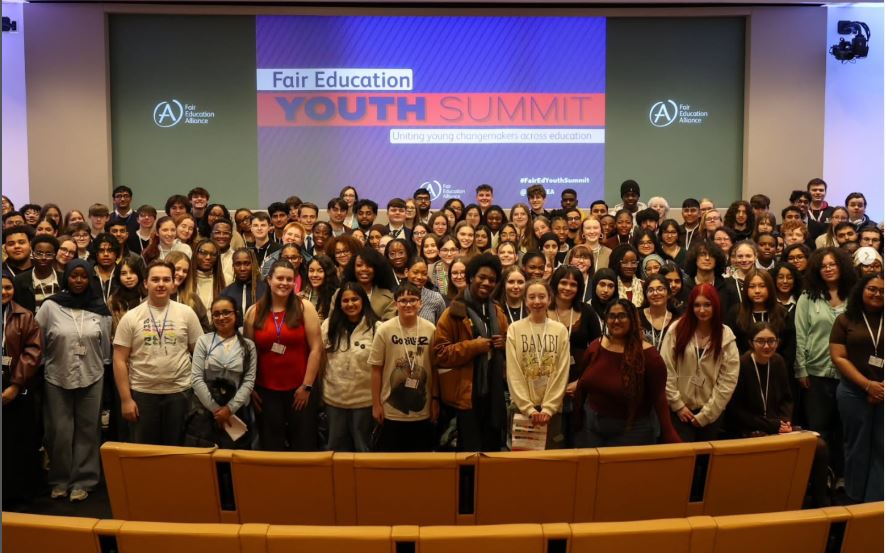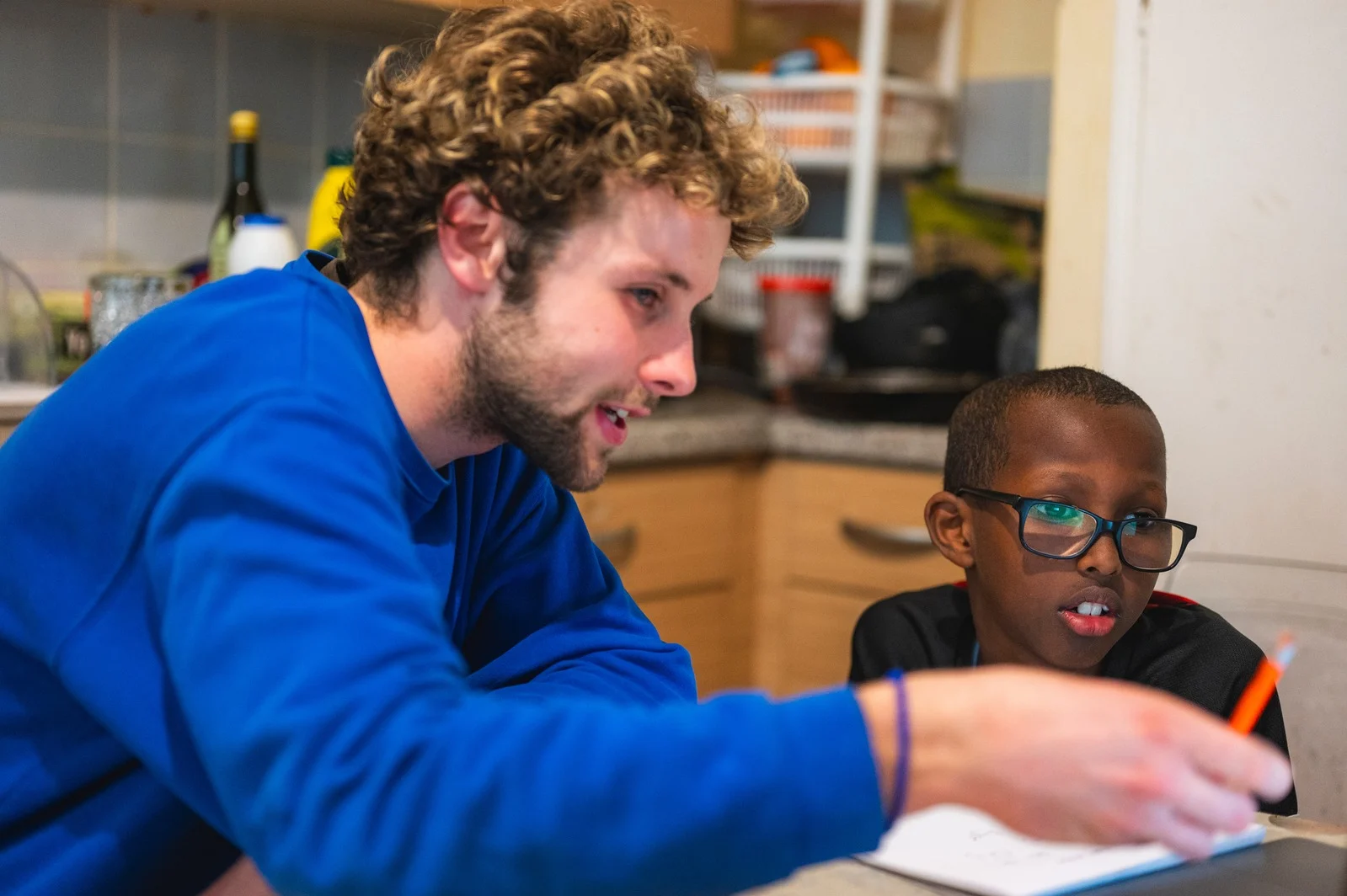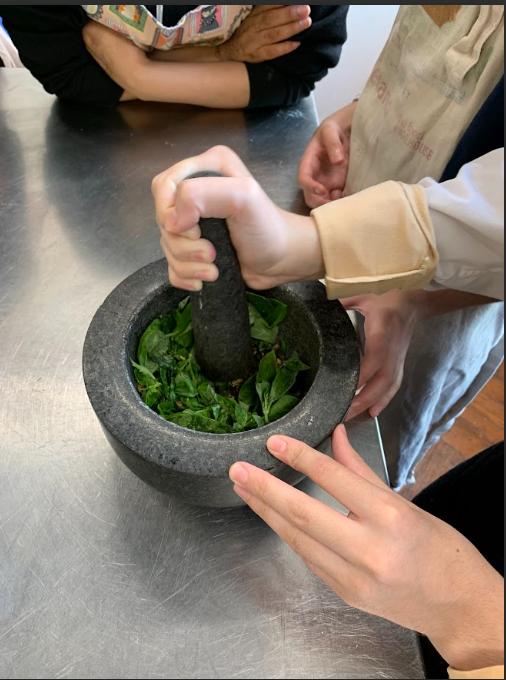

February 24, 2026
Jacari Represented at Fair Education Alliance Youth Summit
Read the reflections of two former Jacari pupils who represented us at the Fair Education Alliance Youth Summit.


January 8, 2026
2024-25 Impact Report
Read Jacari's 2024-25 impact report!
.jpeg)

November 20, 2025
Jacari chosen for Oxford University collaboration.
Jacari joins Oxford’s Science Together programme to learn from the voices of refugee and migrant children through collaborative research in 2025/26.


October 9, 2025
Jacari Story: Sisters Samia, Amina, Sanam, and Arezo
Sisters Samia, Amina, Sanam and Arezo talked to us about their experience as Jacari pupils
.JPG)

July 31, 2025
What’s it like to work at Jacari?!
In June two fantastic work experience students, who also have experience as Jacari pupils, joined us. One of them wrote the blog below about her week of work experience.


June 3, 2025
Jacari author visit: Yoshito Darmon-Shimamori
We wanted to celebrate the many languages our pupils know, and held an event on the ‘superpower’ of being multilingual!


March 28, 2025
Jacari Trip: Oxford Science
Jacari Oxford pupils enjoyed a fantastic trip to Science Oxford! Thanks to all who came along


March 27, 2025
Charity of Thomas Dawson grant
We are delighted to be awarded a grant from the Charity of Thomas Dawson for our work in Oxford
.png)

March 26, 2025
Former Jacari pupil shares their story
Former Jacari pupil shares her story and the impact Jacari had on her education
.png)

March 3, 2025
Thank you RAG Oxford
A big Jacari thank you to University of Oxford RAG for donating over £1400


February 26, 2025
Run for Jacari
Two exciting opportunities to run and fundraise for Jacari this spring


January 23, 2025
New Oxford base for Jacari
Jacari recently moved to a new shared office space in Oxford
.png)

January 6, 2025
2023-24 Impact Report
Read Jacari's 2023-24 impact report


December 20, 2024
Autumn term highlights
As the autumn term comes to an end, we wanted to share with you some of our highlights.


December 10, 2024
Jacari Stories: Amal and Aya
Sisters Amal and Aya received Jacari peer tutoring from sixth formers at a Bristol High school.


November 18, 2024
Volunteer Q&A with Hadiza
Meet Oxford student Hadiza, who has been doing regular home tutoring for Jacari
.png)

November 7, 2024
Thank you trustee Liz Roberts
Liz Roberts answers questions about her experience as a Jacari trustee.


October 23, 2024
New research on peer tutoring
Former Jacari Coordinator Ben Crowther's MA research focused on our peer tutoring project


October 9, 2024
New look for Jacari
Jacari launches exciting new branding and website
.png)

October 7, 2024
Volunteer Q&A with Maya
Meet Oxford Brookes student Maya, one of our amazing volunteers.
%20(1).png)

October 1, 2024
Coordinator job at Jacari
We are looking for a resourceful, motivated individual to coordinate our peer tuition programme


July 2, 2024
Celebrating Sanctuary event
The Jacari Bristol team recently spent a wonderful day at Celebrating Sanctuary, Bristol Refugee Festival’s flagship event.


July 2, 2024
Charity abseil raises over £1800
Last week five of our brave volunteers and supporters abseiled 95 metres down the Lloyd's of London building.


June 20, 2024
Oxford end of year celebration
We had so much fun at our end of year summer celebration event for Jacari Oxford pupils, their families and volunteers.


May 31, 2024
Bristol Schools of Sanctuary Celebration
We celebrated our partner Montpelier High School receiving a School of Sanctuary Award at a special ceremony


May 1, 2024
Jacari Stories: Kateryna and Natalie
Kateryna arrived Bristol from Ukraine and was matched to Jacari volunteer Natalie, who helped her to learn English and grow in confidence.


April 16, 2024
Jacari Stories: Victoria, Xiulan and Eliana
Jacari volunteer Victoria tutors two EAL pupils at a primary school in Oxford


April 4, 2024
Ellie and friends raise £725 for Jacari
Jacari volunteer Ellie Pogrund and her friends Izzy and Eleanor ran the Bath Half marathon in March and raised an amazing £725 for Jacari


January 21, 2024
Peer tutoring update
We’re excited to update you on the development of our new peer tutoring programme, which is going from strength to strength!


January 16, 2024
Jacari commissions research
In 2023 we commissioned Dr Andrea Macrae of Oxford Brookes University to conduct research on children and young people who use English as an additional language (EAL).


November 30, 2023
Jacari Trustee wins Lloyd's Market Charity Award
We’re delighted to announce that our brilliant Finance Trustee, Louise Sykes, has been selected as one of the winners of the Lloyd’s Market Charity Awards


November 7, 2023
Breakdancing for Jacari
Jacari supporter Mona Elghzal ran a breakdance workshop in Oxford in October and raised £200 for Jacari


November 1, 2023
Jacari Stories: Nazia and Adrienne
Read about Jacari pupil Nazia and her volunteer tutor Adrienne


October 19, 2023
Running for Jacari
Our fantastic Jacari volunteer Stephanie Rodley ran The Big Half, London’s half marathon, in September and raised nearly £600 for Jacari


September 18, 2023
Jacari Stories: Ijay and Myles
Read about Jacari pupil Ijay and his volunteer tutor Myles
.png)

September 6, 2023
School partnership: Barton Hill Academy
Guest blogger Allen Olayomi shares with us the impact of Jacari's partnership with Barton Hill Academy.


July 5, 2023
Fundraising £1100 for Jacari on horseback!
India Courage is a University of Bristol student who has been volunteering as a Jacari tutor for the past two years


November 18, 2022
Jacari starts peer tutoring at Bristol High School
We’re excited to launch a brand new project this month - peer tutoring, where A-level students tutor and mentor younger EAL children at their school.